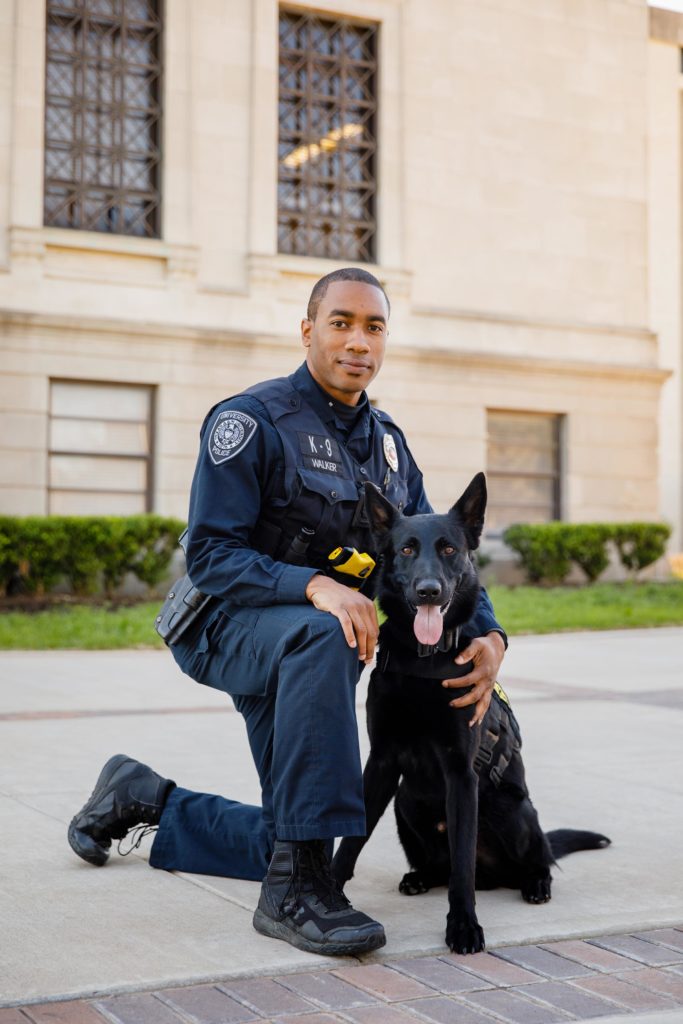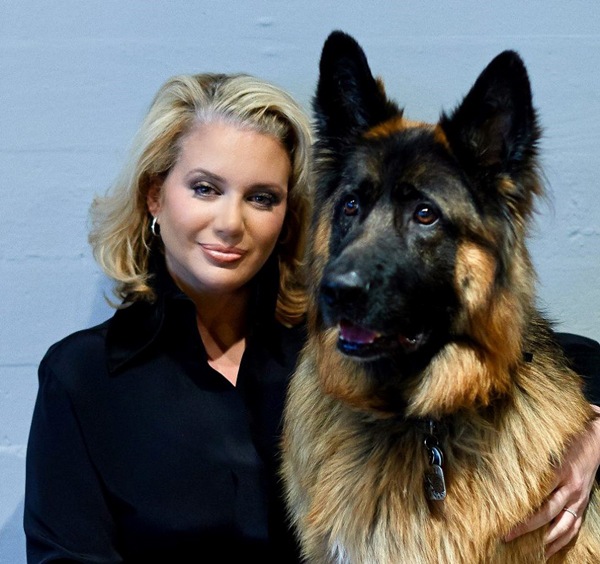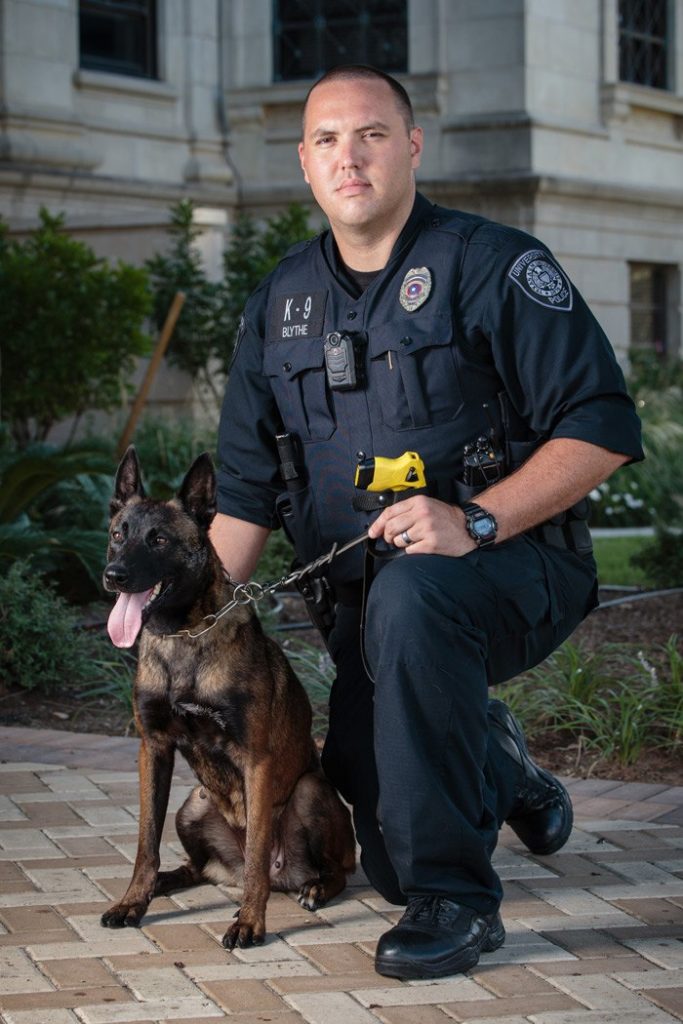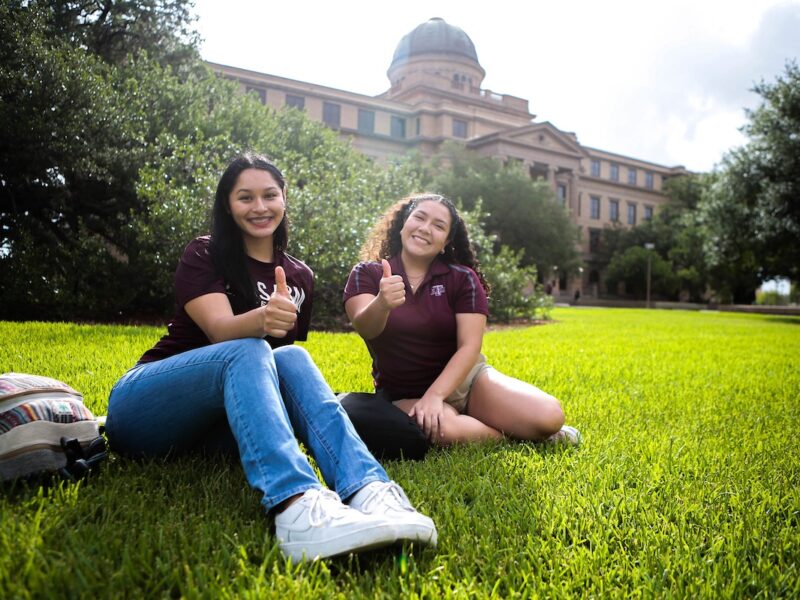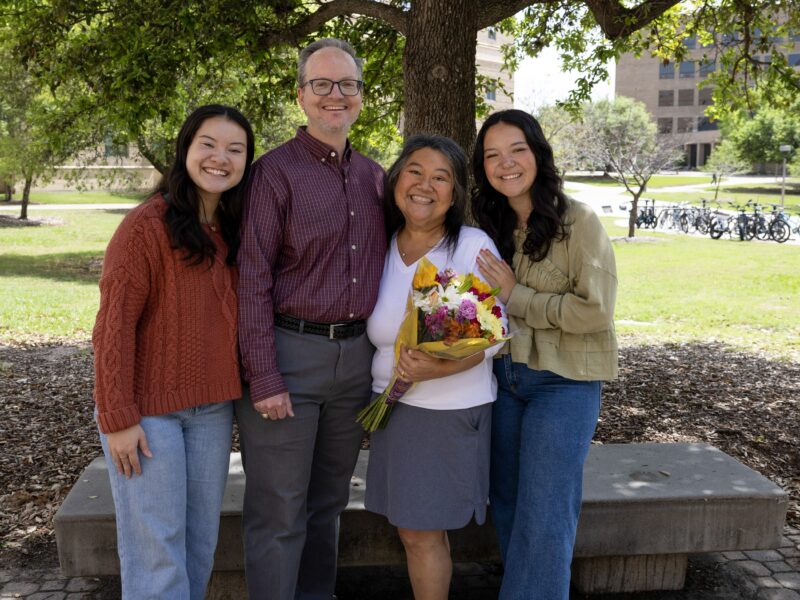As Christmas approached in 2009, Houstonians tuned in to a heart-wrenching newscast about a robbery-gone-awry that left a Czech German Shepherd named Blek dead and his partner, Harris County Sheriff’s Deputy Ted Dahlin, devastated. Among countless viewers, one woman, Kristi Schiller, a Houston philanthropist, leapt into action, and as a result, peace officers and communities across the nation became safer and more secure. She founded K9s4COPs, a non-profit organization that has helped the Texas A&M University Police Department (UPD) as well as numerous other law enforcement agencies and schools acquire highly skilled police dogs.
Early last year, Jackie, a Belgian Malinois, and Tyson, a German Shepherd, both 2 years old, became the first police dogs ever to join the Texas A&M UPD. They were donated by K9s4COPs, 12th Man Foundation Board Trustee and Aggie John D. Schiller, also Kristi Schiller’s husband, and Texas A&M Regent Tony Buzbee. Jackie, Tyson and their handlers were trained extensively to detect explosives at university and community events and to assist the College Station Bomb Squad in potentially dangerous situations.
“My husband is involved heavily with his university,” Kristi Schiller said. “So this particular placement is very dear to our hearts.”
Schiller’s journey to provide police dogs for peace officers began with her desire to be a force for positive change in the world. After Thanksgiving in 2009, she became disenchanted with video clips of Black Friday shopping brawls repeatedly broadcast by national news stations. A couple of days before Christmas, she told her husband that she wanted to impart the true meaning of Christmas to their daughter, Sinclair, who was 3 years old at the time.
“I wanted everyone in the family to write me a letter or pay it forward to someone else in need,” she said. “I wanted to make a significant change for good, but I was not sure how it was going to come to fruition—when I saw a sure sign.”
As Schiller prepared dinner and watched the nightly news, she was saddened by Deputy Dahlin’s recollection of the distressing events that ended the life of his beloved best friend and partner, Blek. Blek had chased robbery suspects into a wooded area and, unable to hear his handler’s return commands over the noise of helicopters hovering overhead, had been strangled by one of them. Schiller told her husband that she wanted to donate another police dog anonymously to Deputy Dahlin for Christmas.
She never dreamed it would be enormously difficult.
Schiller learned that civilians cannot make financial contributions to government agencies and determine where the money is spent. A county judge suggested that she avoid the political red tape by giving her gift through a non-profit organization that provides agencies with police dogs. She soon discovered that such a group did not exist, and in 2010, she established K9s4COPs, a non-profit outfit that purchases police dogs from bonded vendors and donates them to law enforcement agencies. The first fundraiser held in the Schillers’ backyard attracted at least 200 guests and raised more than $500,000. In 2013, after the tragic shooting at Sandy Hook Elementary School in Connecticut, Schiller expanded her organization with an offshoot, K9s4KIDs, which gives the same type of extensively trained dogs to schools.
Jackie and Tyson were bred in Europe for non-aggressive traits and trained specifically to move through large crowds on and off their leashes to detect the odor of explosives. The K-9s actually selected their handlers. They were exposed to multiple officers to determine with whom they bonded best, and they chose Texas A&M UPD Officers Jonathan Blythe and Eric Walker. They trained from June to December of last year at the Alderhorst International Police K-9 Academy in Jurupa Valley, California, followed by local instruction. After passing the National Odor Recognition Test, the duos were certified as Mobile Detection Dog (MODD) teams by the Bureau of Alcohol, Tobacco, Firearms and Explosives (ATF).
“We did not have any of these K-9s in our area and had to rely on the ATF and other jurisdictions for dogs to work at university events, so this is a big deal,” said Texas A&M UPD Lieutenant Bobby Richardson. “They also will work regional events, clear areas before important visitors arrive, and work with the bomb squad to screen suspicious packages.”
A dog’s sense of smell is 300,000 to 500,000 times stronger than a human’s, which makes them invaluable tools for law enforcement officers in search of narcotics, explosives, suspects or missing people. These police dogs from special lineages with extensive training range in cost from $10,000 to $45,000, depending on their specialties. Including their training, Jackie and Tyson cost approximately $40,000 each. In just over six years, K9s4COPs has placed more than 160 police K-9s in 37 states as well as Paris, France, and removed more than $180 million in contraband from the streets. The organization’s dogs also serve more than 20 school districts with 1.2 million children and a dozen university campuses. At the Super Bowl in Houston earlier this year, more than 55 police dogs granted by K9s4COPs worked the crowd.
“There is certainly not a machine that can duplicate what these dogs do,” Schiller said. “They don’t care how you vote, who your grandfather was, what schools you were educated in, or how much money you make — they do it all for the love of a tennis ball and making their handlers proud, and their job happens to entail keeping our streets safe and making sure that officers go home safely to their families.”
To apply for dogs, law enforcement agencies and schools can visit K9s4COPs.org/Apply. An interview to ensure that applicants meet minimum criteria follows the online application process. They must have or demonstrate that they can provide a heat detection alarm for the K-9 vehicle, a kennel, ongoing training and equipment to maintain the dog’s proficiency, special protective uniforms for the dog and officer, and letters from the attending veterinarian, and either the city manager and police chief or the county attorney. The Texas A&M UPD received a grant for almost $85,000 from the Office of the Governor and the Edward Byrne Memorial Justice Assistance Grant Program to cover such expenses.
“The department is grateful to everyone who contributed to the creation of our K-9 unit,” said Texas A&M UPD Chief Michael J. Ragan. “We are confident that the unit will enhance safety at Texas A&M University, and we are proud that we can assist our local law enforcement partners by providing this specialized service to the surrounding communities.”
After the dogs are placed, K9s4COPs follows their progress for the rest of their lives. Statistics are collected monthly about topics ranging from care for the dogs to progress they make in the field — from flea prevention and dental check-ups to drug busts and deployments for potential bombs.
K9s4COPs is privately funded by individuals, corporations, family foundations and “regular folks with big hearts,” Schiller said. A few members of the National Football League have even adopted the organization. Minnesota Viking Defensive End Brian Robison and his wife started the Reel ‘Em In Foundation bass fishing tournaments, held in both Minnesota and Texas, which solely support Schiller’s organization. To donate to K9s4COPs, visit K9s4COPs.org/Donate.
###
